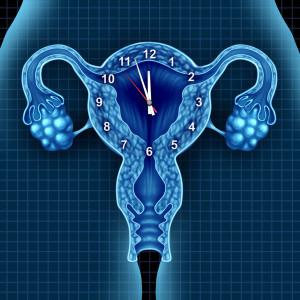 Pills. Injectables. Implantables. Condoms. Diaphragms. Even the rhythm method. With so many contraceptive choices available to today, how can a woman know which choice is right for her and her body? What most women want to know when making this decision is what method do most health care professionals choose for themselves? The answer: An implantable device known as an IUD.
Pills. Injectables. Implantables. Condoms. Diaphragms. Even the rhythm method. With so many contraceptive choices available to today, how can a woman know which choice is right for her and her body? What most women want to know when making this decision is what method do most health care professionals choose for themselves? The answer: An implantable device known as an IUD.
A recent study published in the journal Contraception found that 40 percent of surveyed family planning providers between the ages of 25 and 44 who currently utilize protection use an intrauterine device, or IUD. In comparison, 16 percent reported using oral contraception, while only nine percent reported using condoms as their primary birth control method.
What is an IUD? An IUD is a small contraceptive device, often t-shaped, which is inserted into a woman’s uterus by her doctor. It is considered a long-acting, reversible contraceptive method. In addition to the study published by Contraception, IUDs have been endorsed by the American Academy of Pediatrics as an excellent method to prevent teenage pregnancy. What makes the IUD such a population choice among experts?
- It’s highly effective – Studies have shown the IUD to be 99 percent effective. Compare that to oral contraceptives that are only 91 percent effective, and condoms that are only 82 percent effective.
- Set it and forget it – Oral contraceptives require a woman to remember to take a specific pill at the same time every day. With life’s uncertainties, even the most disciplined woman can accidentally skip a dose. Once inserted, a woman does not need to do anything to maintain her IUD, and some can even be effective for as many as ten years.
- It’s reversible – Once an IUD is removed, a woman’s regular hormonal cycle will take over, and a woman can begin to attempt to conceive.
- There are options – There are multiple IUD products available for women to choose from. There are hormone-free options that can be effective for up to ten years, or versions that release low-doses of progesterone that can be safely used for five years, depending on a woman’s needs.
- It’s safe – Women considering IUDs are screened by their doctor to ensure that they are good candidates for the device, which decreases the risk of pelvic infections which have been associated with the devices in the past
With so many contraceptive options available to women, the IUD can be a convenient, safe, and effective solution for women of all ages and lifestyles. For more information on IUDs and options that may be available to you, speak to your doctor or make an appointment at WNY Ob-Gyn during your next visit.
More
 How Much Time Do You Really Have to Get Pregnant?
How Much Time Do You Really Have to Get Pregnant?
When asked “where do you see yourself after you graduate college?” many young women confidently reply by reciting a heavily considered, regimented life plan:
“I’m going to land my dream job by 22, get engaged to the man of my dreams by 25, we’ll move in together at 26, we’ll get engaged by 27, and get married by 29. By 30 I’ll have become a senior executive in my company, and my husband and I will have three kids before I’m 35, a boy, and two girls, in that order.”
While it may sound like a quintessential and highly responsible plan, the reality is that life sometimes takes us by surprise, leaving us making modifications to our “final” plan along the way. For women whose unexpected life events result in a delay in childbearing, many report that they begin to feel the metaphorical ticking of their biological clock – an internal feeling of foreboding that they need to have a baby soon “before it’s too late.” What is this feeling that we associate with a ticking clock? At what age do women really begin to lose fertility, and what steps should women who want to have a baby take to ensure the highest likelihood for conception?
The term “biological clock” often refers to a woman’s increased maternal instincts as they age and worry that they will soon be too old to successfully naturally conceive. There is debate as to whether the ticking clock is a true physical and psychological response, or a socialized experience.
What is a known fact, however, is that as women age, their fertility levels decrease. In general, the best age for women to get pregnant and carry a healthy baby to term is between the ages of 20 and 35. Once women enter their 40s, as many as 40 percent of pregnancies end in miscarriage, and by the time they reach 45, only ten percent of women are able to conceive naturally. This statistic is a concern to many women today, as the number of older mothers is rising as women prioritize education and career before having children. In 1999, only 16 percent of new mothers were over age 35. By 2008, that number had increased to 23 percent.
Women who want to conceive may be able to look to their family history to determine the longevity of their fertility. If a woman’s mother or grandmother was able to conceive naturally into her late thirties and forties, she may be able to as well. Women should also avoid smoking, excess alcohol and recreational drug use, as all of these can negatively impact egg quality. Women who want to conceive should also maintain a healthy diet, and should lead an active lifestyle to ensure a healthy weight, to minimize the chances of miscarriage.
For women with questions or concerns regarding their fertility, their best bet, is to speak to their physician. Simple tests can determine a woman’s fertility, and a doctor can provide options for increasing the likelihood of conception as well as maintaining a healthy pregnancy. If you are looking for a top Ob-gyn practice in Western New York, please give Chouchani, Sayegh and Bagnarello MD a call today. We are accepting new patients.
More

You’ve read the baby books, you’ve talked to your friends, and you’ve started picking out names. The only thing that you need to do now is to conceive. Preparing for pregnancy is an emotional, mental, and physical responsibility. Follow these 8 tips to best position your body to bring a healthy and happy baby into the world:
- Begin taking folic acid supplements. Taking 400 micrograms of folic acid a day for at least one month prior to conception and during your first trimester can decrease the chances of your baby being born with a neural-tube defect by 50 to 70 percent.
- Eliminate alcohol, tobacco, and drug use. Smoking and drug use can increase the risk of having a miscarriage, a premature birth, or a baby with low birth weight. Tobacco use can also affect your fertility, and may impact your ability to conceive. Read these tips to help quit smoking.
- Increase your consumption of healthy foods. Even before you conceive, make sure that your body has the nutrients needed for a healthy pregnancy. Increase your daily intake of fruits, vegetables, and whole grains, as well as foods that are high in calcium. Be sure to eat a variety of sources of protein, such as beans, nuts, poultry and meats. In addition to increasing your consumption of healthy foods, eliminate foods that may increase your risk of acquiring a food-borne illness. Reduce your intake of unpasteurized soft cheese, unpasteurized juices, cold deli meats, and raw and undercooked fish and poultry. These foods can have high rates of bacteria that can cause illness, and in the most serious cases lead to a miscarriage or stillbirth.
- Maintain a healthy weight. Women with a health body mass index (BMI) may be more readily able to conceive. A pregnant woman whose body weight is too high may experience delivery complications, while a woman whose weight is too low may give birth to an underweight infant.
- Begin, or stick to, an exercise routine. A healthy exercise program includes 30 minutes of moderate exercise at least three times per week. If you are not currently exercising on a regular basis, slowly increase the length and intensity of your workout routines. Once you become pregnant, continue your fitness routine, unless you experience complications or are advised to stop by your doctor. A consistent exercise routine can help you to maintain a healthy weight, improve your cardiovascular and pulmonary health, and can increase your flexibility, all of which will benefit you during your pregnancy.
- Reduce your caffeine intake. Women who are pregnant or are trying to conceive should not consume a large amount of caffeine. An overconsumption of caffeine has been linked to an increased risk of miscarriage.
- Be aware of your mental health. Women who suffer from depression are twice as likely to have problems with fertility. Women who are looking to get pregnant should obtain a mental health screening, especially if they have a family history of depression.
- Make an appointment with your OB-GYN. Last but certainly not least, you should make an appointment to see your doctor. He/she can assess your overall health and make sure everything is normal in order to give you and your baby the best start.
Preparing your body to carry a baby is an important aspect of pregnancy that should not be overlooked. A healthy body will be best able to carry a baby to full-term, enabling you to deliver a healthy baby without complications. Chouchani, Sayegh and Bagnarello MD is accepting new patients. Give us a call today.
More
 You think getting pregnant will be easy. You have sex, you get pregnant, right? But in reality, life doesn’t always work that way. If you’re trying to conceive, these simple health changes can help boost your chances of conception.
You think getting pregnant will be easy. You have sex, you get pregnant, right? But in reality, life doesn’t always work that way. If you’re trying to conceive, these simple health changes can help boost your chances of conception.
If you’re a woman trying to get pregnant, consider:
Managing Your Weight
Being underweight or overweight can delay your ability to conceive. Talk to your doctor about what is a healthy weight for you and how best to achieve it. Use these summertime healthy habits to get started.
Watching What You Drink
Drinking too much coffee (or other caffeinated beverages) or too much alcohol can impair your fertility. If you drink coffee or soda, monitor your intake to make sure you stay under 200 to 250 milligrams of caffeine a day.
Studies on alcohol intake and women’s fertility have produced mixed findings. But Swedish researchers have found that women who drank two alcoholic beverages a day decreased their fertility by nearly 60%. Once again, moderation is key.
Eating Better
To make sure your body has enough of the vitamins and minerals it needs in order to conceive, eat a wide range of fruit and vegetables, eat more nuts, seeds and oily fish, and eat less meat.
If you and your partner are working together to increase your chances of getting pregnant, here are some tips just for him, and a few for both of you!
Protect Those Sperm
Okay, the idea that switching to boxers instead of briefs will boost fertility by keeping genital temperatures down is basically an old wives’ tale. But men should still avoid hot tubs or taking regular hot baths. And a man who wants to be a father probably shouldn’t keep his laptop on his lap for extended periods of time.
Stop Smoking
Smoking cigarettes can impair both men’s and women’s fertility. Smoking can reduce sperm production and damage DNA, and it affects how receptive the uterus is to the egg. And in men, smoking can reduce sperm production and damage DNA. (Follow these ideas to quit smoking.)
Experts also strongly suggest…
Timing Intercourse Wisely
Take advantage of what doctors call the “fertile window,” the six days that end on the day of ovulation. Pregnancy is most likely to occur with intercourse within the three days before ovulation.
Avoiding Pesticides and Other Harmful Chemicals
Exposures to pesticide, especially agricultural pesticides, may harm both men and women’s fertility. So will exposure to some solvents and toxins, such as those used in printing businesses and dry cleaning establishments.
Any more questions? If you’d like to talk to a doctor about your ability to conceive or how you can increase your chances of conception, make an appointment Chouchani, Sayegh and Bagnarello today.
Photo courtesy of freedigitalphotos.net.
More
 You may already know how hard it is to try to quit smoking. You get cravings, you get irritable, and you find yourself fighting the urge to have “just one” cigarette. But now that you’re pregnant, you know it’s never been more important to quit. Here are some tips to help you be successful and have a healthier pregnancy:
You may already know how hard it is to try to quit smoking. You get cravings, you get irritable, and you find yourself fighting the urge to have “just one” cigarette. But now that you’re pregnant, you know it’s never been more important to quit. Here are some tips to help you be successful and have a healthier pregnancy:
1. Have a plan
The first step toward setting yourself up for success? Setting up a plan. Quitting smoking isn’t as easy as just throwing your last pack away. You need to know what you’re going to do when those cravings hit.
- Set a quit date. Make it public, and make yourself accountable, by telling your friends, family and co-workers. And make it as soon as possible!
- Figure out which way will work best for you—going cold turkey or cutting back gradually.
- Have a strategy for handling cravings. They can be difficult, so remind yourself that they only last a few minutes. Chew a piece of gum, have a piece of candy, go for a quick walk or make a phone call. Do something that distracts your mind for a few minutes until the craving passes.
2. Ask for support from people around you
Support from your friends, family and co-workers can double your chances of success. For example, if any of them are ex-smokers, ask if you can give them a quick call when a strong craving hits. If any of them still smoke, ask them not to smoke in front of you.
3. Talk to your doctor or other healthcare practitioner
However you decide to quit smoking, your doctor can help you. He or she can give you information about local support programs, talk to you about nicotine replacement therapy and encourage you through a difficult time. Continue to be honest with your practitioner over the course of the pregnancy about your successes and setbacks, so they can pay extra attention to the growth and development of your fetus if necessary.
4. Learn to motivate yourself
Giving up cigarettes is hard work. But as a pregnant woman, you have one of the best incentives to give up! Keep reminding yourself of the benefits of quitting, both for your unborn baby and your own health.
5. Don’t give up if you have a relapse
If you do start smoking again while trying to quit, don’t punish yourself, and don’t give up. Your ultimate goal is to kick the habit for good, so just go back to your plan. Don’t think of yourself as a failure, and be assured that your cravings and withdrawal symptoms will fade within weeks.
At Chouchani, Sayegh and Bagnarello, our goal is to help you have a safe and healthy pregnancy. Please contact us if you’re looking for support to quit smoking, we can provide resources and tools to help you kick the smoking habit for good!
More
 There’s a lot to think about and learn when you’re expecting a baby, especially your first! And how you’re going to drive your baby around may be low down on your list of priorities.
There’s a lot to think about and learn when you’re expecting a baby, especially your first! And how you’re going to drive your baby around may be low down on your list of priorities.
But choosing and installing the right car seat is one of the most important things you’ll do as a new parent. In order to keep your baby as safe as possible, keep these tips in mind when purchasing:
- Infants should always be placed in a rear-facing car seat until they are 20 pounds and 1 year of age.
- Make sure that the car seat you want to buy fits properly in your vehicle. Not all car seats fit in all vehicles. Test the car seat you plan to buy ahead of time to make sure you can install it securely.
- The belt on the car seat should be fastened at chest level and tight enough so that you cannot place more than one finger between the strap and the baby’s shoulder.
- Never put an infant in the front seat of a car that has a passenger side air bag.
- If using a carrier-style car seat, check the weight restrictions. Some have a maximum weight limit of 15 pounds, which many infants will outgrow prior to turning 1 year.
- A car seat should be thrown out when it is older than five years. At this point, the materials have begun wearing down, compromising the integrity of the car seat.
- Never purchase a car seat from a yard sale or use one that comes from someone you don’t know. Even a minor fender-bender can damage a car seat’s integrity.
When you’ve purchased the car seat, you’ll want to make sure it’s installed correctly. Unfortunately, even with the LATCH system, sometimes installation can be frustrating and confusing. Luckily, most towns have police officers on staff who have been thoroughly trained in the installation of car seats and can check to make sure yours is safely in place. Ask your doctor, your hospital of choice or your pediatrician how and where to find this information.
At Chouchani, Sayegh and Bagnarello, we help our mothers-to-be keep their little ones safe and healthy, even before they’re born! If you’re looking for personal, complete prenatal care in Western New York, call our offices today to set up an appointment.
More
 This year marks the 25th anniversary of National Infertility Awareness Week, held from April 20–26, 2014. Sponsored by RESOLVE: The National Infertility Association, this year’s slogan is “resolve to know more.”
This year marks the 25th anniversary of National Infertility Awareness Week, held from April 20–26, 2014. Sponsored by RESOLVE: The National Infertility Association, this year’s slogan is “resolve to know more.”
The stated goal of NIAW is to raise awareness about the disease of infertility and encourage the public to understand their reproductive health.
What does this mean?
While many people may think that infertility affects only women, it also impacts men, and healthcare and mental health professionals of both sexes. One in eight U.S. couples of childbearing age is diagnosed with infertility—7.3 million women in the U.S. and their partners, which constitutes approximately 12% of the reproductive-age population. Women and men are equally affected: one third of infertility cases can be attributed to female factors, one third to male factors, and one third a combination of female and male factors or unexplained.
The media tends to focus only on age-related infertility issues or on those women who take extreme measures, like “Octo-Mom,” but the truth is that infertility affects women of all ages and backgrounds. And not all women can afford infertility treatment.
Insurance coverage for infertility is only available in 15 out of 50 states in America. And while cost information is hard to come by, Resolve has put together the following estimates:
- Average cost of an IUI cycle: $865; Median Cost: $350
- Average Cost of an IVF cycle using fresh embryos (not including medications): $8,158; Median Cost: $7,500
- Average additional cost of ICSI procedure:$1,544; Median Cost: $1,500
- Average additional cost of PGD procedure: $3,550; Median Cost: $3,200 (Note: Medications for IVF are $3,000 $5,000 per fresh cycle on average.)
When insurance doesn’t pay, those costs are borne by the couple attempting to get pregnant.
Resolve also hopes that NIAW will raise awareness of the options available to women or couples who cannot conceive without assistance. In addition to fertility medications and assisted reproductive technology such as intrauterine insemination (IUI) and in-vitro fertilization (IVF), these options include:
- Adoption
- Donor Options
- Living Childfree
- Surrogacy
Finally, NIAW helps to educate women on their bodies, providing basic information on the female reproductive system and how conception occurs, and more specific information on ovulation and fertility, the menstrual cycle, the male reproductive system and hormones in both genders.
To find out more about National Infertility Awareness Week, visit their website.
At Chouchani, Sayegh and Bagnarello, we are committed to helping our patients with family planning and infertility. Please contact us today to talk with one of our knowledgeable OB-GYN doctors in Western New York. We have three convenient locations across Western New York.
More
 Are you thinking about trying to have a baby? Before you take that leap, take the time to evaluate your current health and habits. Taking care of your body and your health before you try to get pregnant will not only help you get pregnant. It can also improve your chances of a healthy pregnancy and baby. How?
Are you thinking about trying to have a baby? Before you take that leap, take the time to evaluate your current health and habits. Taking care of your body and your health before you try to get pregnant will not only help you get pregnant. It can also improve your chances of a healthy pregnancy and baby. How?
1. Visit Your Doctor
Tell your doctor your plans, so the two of you can discuss your personal and family health histories and any medical conditions you currently have that could affect a pregnancy, such as sexually transmitted diseases (STDs), diabetes, thyroid disease, phenylketonuria (PKU), seizure disorders, high blood pressure, arthritis or eating disorders. You’ll need to review which medicines you’re currently taking, vaccinations that you might need, and steps you can take before pregnancy to prevent certain birth defects. If you’ve been pregnant before, the two of you can go over any previous pregnancy-related problems.
2. Quit Birth Control
This one sounds like a given, but depending on what form you use, you may need some time. If you use an IUD, your doctor will need to remove it. If you take the Pill or use Depo-Provera, you might not ovulate for month. Give your body time to adjust and restart its own monthly cycle.
3. Take 400 Micrograms of Folic Acid Every Day
Folic acid is a B vitamin. You’ll want to have enough folic acid in your body for at least 1 month before pregnancy, then during pregnancy, to help prevent major birth defects of the baby’s brain and spine.
4. Stop Drinking Alcohol, Smoking, and Using Street Drugs
If you smoke, regularly drink alcohol or use street drugs, be honest with your doctor. These habits can cause many problems during pregnancy for you and your baby, such as premature birth, birth defects and infant death. Your doctor can help you quit, or find someone who can.
5. Avoid Toxic Substances and Contaminants
Both at work and at home, stay away from potentially harmful materials like synthetic chemicals, fertilizer, bug spray and cat or rodent feces (have someone else clean the litter box or do your weeding). Any of these substances can hurt your reproductive system and make it more difficult to get pregnant. And exposure to even small amounts during pregnancy, infancy, childhood, or puberty can lead to diseases.
6. Maintain a Healthy Weight
If you are overweight or obese, you run a higher risk for many serious conditions, including pregnancy complications, heart disease, type 2 diabetes, and certain cancers. If you are underweight, you’re also at risk for serious health problems. If you are underweight, overweight, or obese, talk with your doctor about ways to reach and maintain a healthy weight before you get pregnant.
Once you are pregnant, be sure to keep up all of your new healthy habits and get regular prenatal care from your doctor. If you have any questions about planning a pregnancy or are newly pregnant, please call Chouchani, Sayegh and Bagnarello. Your health is our top priority!
More
 IUDs are one of the least common forms of birth control in this country—only 2 percent of American women use them—although their success rate is high. Why? Possibly because there is so much misinformation about them.
IUDs are one of the least common forms of birth control in this country—only 2 percent of American women use them—although their success rate is high. Why? Possibly because there is so much misinformation about them.
Basic Information
An IUD, or intra-uterine device, is an object that is placed inside the uterus by a physician. There are three different kinds of IUDs manufactured in the United States today. One type is hormonal and lasts up to five years; the second type delivers a lower dose of hormones and lasts up to three years; and the third uses copper as a spermicide and lasts up to 10 years.
How they work
Non-hormonal IUDs are made from copper, which acts as a natural spermicide. Hormonal IUDs gradually release small doses of synthetic hormones. Both types thicken your cervical mucus, which creates a hostile environment for embryo implantation and prevents pregnancy.
The two main types of IUDs
The two hormonal IUDs are Mirena and Skyla. Mirena lasts up to five years, while Skyla delivers a lower dose of hormones, is slightly smaller, and lasts up to three years.
The copper-coil IUD, ParaGard, slowly releases copper ions for up to 10 years.
IUDs: Busting the Myths
Myth #1: Getting an IUD will make me infertile.
The truth: No, it won’t!
IUDs got a bad rap in the 1970s due to a product called the Dalkon Shield. This plastic IUD’s was badly designed and led to septic miscarriage and even death for some users. IUDs began to be associated with higher risks of infertility and pelvic inflammatory disease.
Doctors know that today’s IUDs do not affect fertility.
Myth #2: IUDs cause infections like Pelvic Inflammatory Disease (PID).
The truth: No, they don’t!
Although IUDs do not protect against sexually transmitted infections (STIs), they can’t cause them. This fear came about due to the lack of rigorous STI testing in previous decades. People would get an STI—or have one prior to the IUD’s insertion—then blame the infection on the device. You still cannot get an IUD if you already have an STI. If your STI status is negative, getting an IUD is extremely unlikely to cause any kind of infection.
Myth #3: IUDs are really expensive.
The truth: IUDs are cheaper than pills in the long run—but must be paid for up front.
It’s hard to estimate what your IUD might cost because there are so many factors, the most significant one being insurance coverage. But research has shown that out of five popular contraceptives, IUDs are the cheapest over five years for both insured and uninsured users.
Is an IUD the right method for you?
Birth control is not one size fits all. Your age, health and other factors come into play. If you would like to discuss your options, please call Chouchani, Sayegh and Bagnarello. We always work with our patients to create the most successful course of care!
More
 Pills. Injectables. Implantables. Condoms. Diaphragms. Even the rhythm method. With so many contraceptive choices available to today, how can a woman know which choice is right for her and her body? What most women want to know when making this decision is what method do most health care professionals choose for themselves? The answer: An implantable device known as an IUD.
Pills. Injectables. Implantables. Condoms. Diaphragms. Even the rhythm method. With so many contraceptive choices available to today, how can a woman know which choice is right for her and her body? What most women want to know when making this decision is what method do most health care professionals choose for themselves? The answer: An implantable device known as an IUD.







